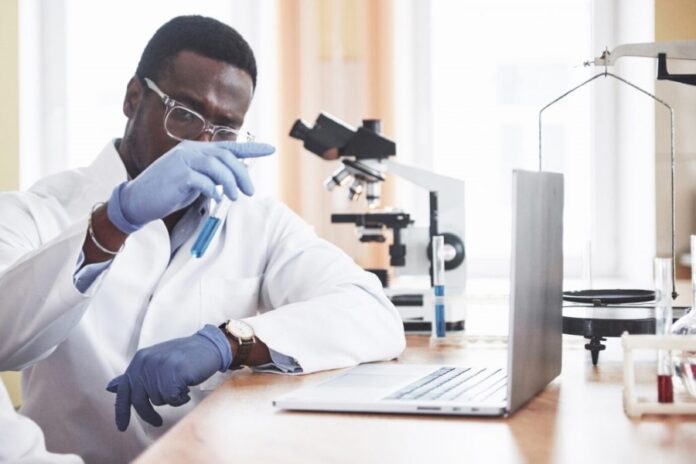In the wake of the COVID-19 pandemic, Africa has made strides in its technical capacity to diagnose infectious diseases. However, the continent still faces critical challenges in disease surveillance and diagnostic readiness, underscoring an urgent need to bridge these gaps. Research recently published in Frontiers in Public Health highlights these shortcomings and offers insights into strengthening Africa’s health systems against future outbreaks.
The Africa Centres for Disease Control and Prevention (Africa CDC) reports that in 2023 alone, the continent experienced 180 public health emergencies. A staggering 90% of these were due to infectious diseases, with 75% being zoonotic in nature. The outbreaks included mpox, diphtheria, dengue, Lassa fever, measles, poliomyelitis, Rift Valley fever, and cholera. These figures emphasize the pressing need for robust diagnostic and surveillance mechanisms.
Prioritizing Epidemic-Prone Diseases
Africa CDC has developed a risk-ranking tool—a list of priority epidemic-prone diseases—to guide research, preparedness, and response strategies. This framework not only informs the development of vaccines, diagnostics, and therapeutics but also adapts based on emerging evidence to remain relevant to current challenges.
“The study conducted by the Africa CDC identifies diagnostic and surveillance gaps, offering valuable insights to guide policymaking, resource allocation, and interventions,” said Dr. Aytenew Ashenafi of the Centre of Laboratory Systems Division, Africa CDC, who led the research.
Assessing Diagnostic Capacities Across Africa
The research involved an online self-assessment survey conducted from February to April 2023, covering 15 African Union (AU) Member States. It examined the diagnostic capacity for 22 priority epidemic-prone diseases. The survey aimed to:
- Assess existing diagnostic technologies.
- Explore challenges in building and maintaining diagnostic capacity.
- Analyze current surveillance programs.
Participating countries spanned all five African regions, including South Africa, Lesotho, and Madagascar in the south; Ethiopia and Somalia in the east; and The Gambia and Sierra Leone in the west. However, significant gaps in participation from certain regions reflect disparities in infrastructure and resources.
The Africa Laboratory Technical Working Group validated the survey, which was available in English and French, ensuring its robustness.
Findings: Major Barriers to Diagnostics and Surveillance
Key challenges identified in the study include:
- Inconsistent Laboratory Supplies (85%): A critical barrier, with shortages of essential materials like PCR reagents and extraction kits.
- Inadequate Infrastructure (45%): Many laboratories lack the physical resources required to perform advanced diagnostics.
- Limited Government Funding (43%): Chronic underinvestment hampers progress in health system development.
- Inadequate Equipment Management (35%) and Human Resources (25%): These deficiencies limit operational efficiency and scalability.
Implications and Recommendations
The variation in laboratory capacities across AU Member States was striking, with some countries exhibiting pronounced limitations. These disparities highlight the need for tailored investments to build resilient diagnostic systems.
To address these gaps, the study proposes several strategies:
- Adopting Rapid Diagnostic Tests and Portable Technologies: These tools can improve accessibility and timeliness in disease detection, especially in remote areas.
- Strengthening Laboratory Networks: Collaboration at national and regional levels can foster resource sharing and standardization.
- Enhancing Funding Mechanisms: Increased government and international funding is critical to sustain and expand diagnostic capacities.
- Fostering Human Resource Development: Training programs can build a skilled workforce to manage and operate advanced diagnostic systems effectively.
A Roadmap for Resilience
The study’s findings provide a comprehensive roadmap for AU Member States to enhance laboratory and surveillance capabilities. Targeted investments and informed policymaking can significantly improve Africa’s preparedness for health crises.
“African countries must prioritize diagnostics, fortify infrastructure, and cultivate regional collaboration to combat future epidemics,” Dr. Ashenafi emphasized.
By addressing these challenges, Africa can establish a robust public health framework capable of mitigating the impacts of disease outbreaks and ensuring the well-being of its populations. This proactive approach is essential for building a resilient health system that safeguards the continent against future pandemics.
















 The African Research (AR) Index is a comprehensive scholarly directory and database focused explicitly on journal publishers that publish and disseminate African research.
The African Research (AR) Index is a comprehensive scholarly directory and database focused explicitly on journal publishers that publish and disseminate African research.

